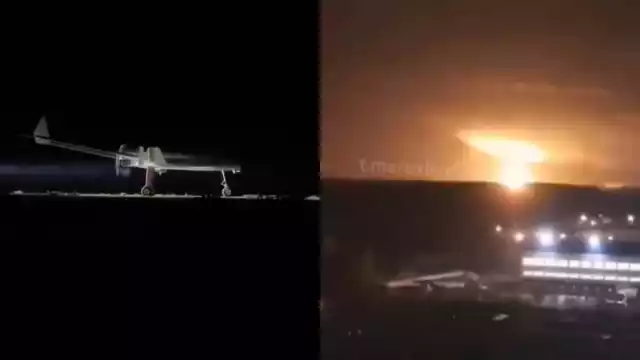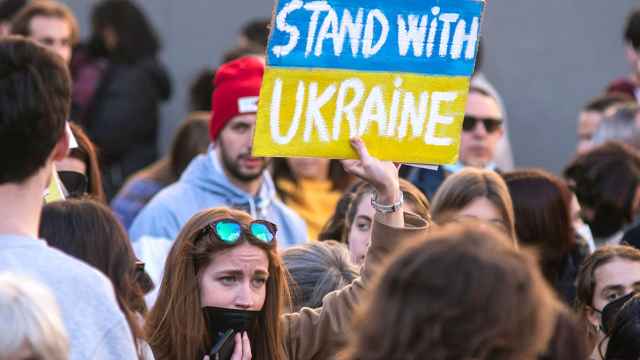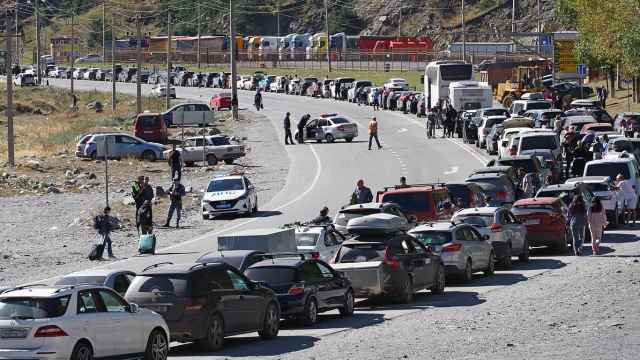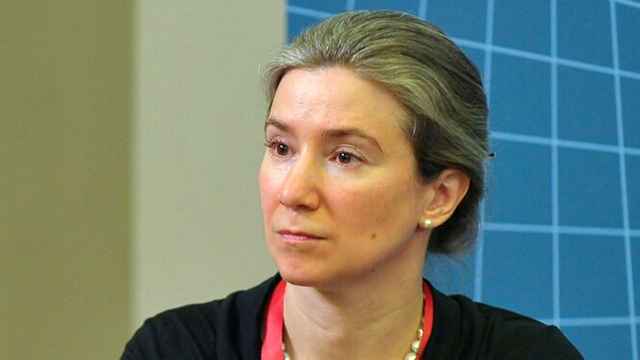Over 15% of Russians who left the country following the invasion of Ukraine and the Kremlin’s “partial” military mobilization have since returned, either temporarily or permanently, the Financial Times reported Wednesday, citing new research.
Researchers Emil Kamalov and Ivetta Sergeeva from the European University Institute in Florence, Italy conducted a long-term survey of 5,000 Russian emigres in 60 countries called OutRush.
According to the researchers, survey participants tended to be young, politically active and highly educated compared to Russia’s overall population.
“It’s definitely not an economic migration in the classical sense,” Sergeeva told the Financial Times. “These are people who have been very competent specialists in Russia and are now losing the money, the status … For many people, the quality of life is declining [abroad].”
“Work is very bad, visas are bad too, so some people come back and some don’t,” anthropologist Alexandra Arkhipova told the Financial Times.
The newspaper added that the authorities have managed to maintain “a vestige of normality” and economic stability, at least in Moscow, amid the war.
Russia saw two historic waves of outward migration in 2022: one in the spring following the full-scale invasion of Ukraine and one in the fall after the mobilization announcement.
According to Kirill Rogov, a political scientist at the Re:Russia project, more than 820,000 people have left Russia since February 2022.
Many fled out of opposition to the war on Ukraine, fears of economic collapse, or a refusal to be sent to the battlefield.
President Vladimir Putin initially described this outflow as a “natural and necessary cleansing of society” of “scum and traitors” in March 2022.
By June 2023, he had shifted tone, describing Russians who remain abroad as “an additional element connecting Russia and those countries with which we are already developing economic and humanitarian contacts,” and claimed that “modest estimates” found that 50% of those who had left after February 2022 had since returned.
In contrast, officials like Deputy Security Council Chairman Dmitry Medvedev and State Duma Speaker Vyacheslav Volodin have called for harsh punishments on Russians who have fled the war.
Volodin said returning emigres should be sent to mines in a Far East region known for its Soviet-era Gulag prison camps, accusing them of committing “despicable deeds, rejoicing at shots fired towards the territory of Russia,” and wishing for the victory of the “Nazi, bloody regime in Kyiv.”
Following Volodin’s remarks, the Kremlin said that Russia was indeed “not on the same path” as those who “took a pronounced anti-Russian position and sided with the Kyiv regime.”
“But,” added Putin’s spokesman Dmitry Peskov, “these people always, no matter what, have their homeland. This homeland is Russia, and it is always waiting for them.”
A Message from The Moscow Times:
Dear readers,
We are facing unprecedented challenges. Russia's Prosecutor General's Office has designated The Moscow Times as an "undesirable" organization, criminalizing our work and putting our staff at risk of prosecution. This follows our earlier unjust labeling as a "foreign agent."
These actions are direct attempts to silence independent journalism in Russia. The authorities claim our work "discredits the decisions of the Russian leadership." We see things differently: we strive to provide accurate, unbiased reporting on Russia.
We, the journalists of The Moscow Times, refuse to be silenced. But to continue our work, we need your help.
Your support, no matter how small, makes a world of difference. If you can, please support us monthly starting from just $2. It's quick to set up, and every contribution makes a significant impact.
By supporting The Moscow Times, you're defending open, independent journalism in the face of repression. Thank you for standing with us.
Remind me later.






